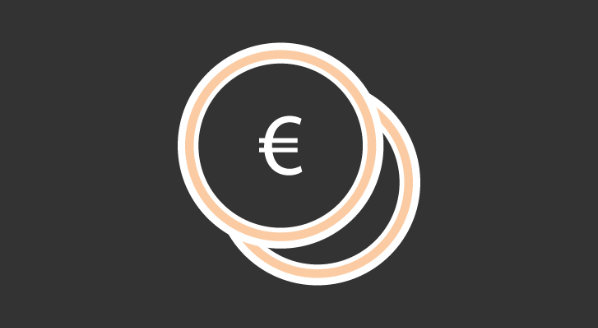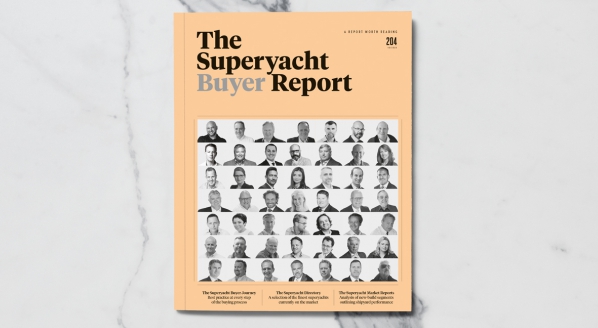The meaning of ‘VAT paid’
Beatriz Alonso, founder and MD at Evolution Yacht Agents, clarifies the term for the superyacht industry…
In the nautical sector, we often hear phrases such as ‘this yacht has the VAT paid’ or ‘this yacht is VAT paid’. However, the concept of having VAT paid creates much confusion and needs to be explained.
In the European Union, the basic VAT regulation is the ‘Council Directive 2006/112/EC of 20th November 2006 on the common system of value added tax’. Based on this directive, it is essential to understand that the member states of the European Union draw up their own laws governing national VAT.
In TITLE IV of the directive, four types of taxable transactions are presented:
- Supply of goods;
- Intra-community acquisition of goods;
- Supply of services;
- Importation of goods.
Here, you can see that there is no taxable transaction called yacht or vessel. This tax structure means that it is in fact the operations of supply of goods (yachts), the intra-community acquisition of goods (yachts), the supply of services or the importation of goods (yachts) that would be affected by VAT payment; not the yacht by itself.
Another important point of clarification is that VAT is a multiphase tax, not a single-phase tax as can be the case with excise duties or the matriculation tax. This is clearly stated in article 1.2 of the directive:
“2. The principle of the common system of VAT entails the application to goods and services of a general tax on consumption exactly proportional to the price of the goods and services, however, many transactions take place in the production and distribution process before the stage at which the tax is charged. On each transaction, VAT, calculated on the price of the goods or services at the rate applicable to such goods or services, shall be chargeable after deduction of the amount of VAT borne directly by the various cost components. The common system of VAT shall be applied up to and including the retail trade stage.”
Therefore, VAT is not a tax that can be considered ‘once paid, forever paid’, but instead it is a tax in which each taxable transaction can give rise to the requirement to pay again, whether it has been paid previously or not. As such, what is important is not to establish if it the VAT has already been paid or not on a taxable transaction involving the yacht, but rather if the operation taking place (for example sale, intra-community delivery or importation) could lead to a taxable transaction that could give rise to the obligation to pay the VAT. It could also be the case that it will be a taxable transaction but there will be additional conditions that allow an exemption.
For example, each entry into the territory of the Customs Union and into the VAT territory of the Union can lead to (and generally does) a taxable transaction importation. However, if the conditions of article 143 of the Directive are met (that member states shall exempt the reimportation, by the person who exported them, of goods in the state in which they were exported, where those goods are exempt from customs duties), this will lead to an exemption.
Exemption means that the tax exists, that a chargeable event has occurred, but that the member state will not require payment of VAT if certain conditions are met.
To summarise, what we need to clarify is that the fact that, at some point in time, VAT for a taxable transaction on a yacht that has already been paid does not mean that further obligations to pay VAT will not arise if new taxable transactions take place.
It is important to study each situation and the specifics of the vessel, all the details, the location where the operation takes place and the destination.
Profile links
NEW: Sign up for SuperyachtNewsweek!
Get the latest weekly news, in-depth reports, intelligence, and strategic insights, delivered directly from The Superyacht Group's editors and market analysts.
Stay at the forefront of the superyacht industry with SuperyachtNewsweek
Click here to become part of The Superyacht Group community, and join us in our mission to make this industry accessible to all, and prosperous for the long-term. We are offering access to the superyacht industry’s most comprehensive and longstanding archive of business-critical information, as well as a comprehensive, real-time superyacht fleet database, for just £10 per month, because we are One Industry with One Mission. Sign up here.
Related news

Lower tax rate for Spanish charters starting in Melilla
A 0.5 per cent IPSI rate could be applicable to charters instead of the 21 per cent VAT rate
Business

2020 viewed as anomalous for commercial exemption in France
An update for superyachts in France concerned about the French Commercial Exemption's 70 per cent of trips rule
Business

The end of French lease finance
James Neocleous of Jaffa & Co. explores the collapse of the leaseback scheme in France and the remaining options
Business

Considering a superyacht? Think about VAT
Equiom's David Prescott adds to our Buyer Journey with some additional tax advice
Owner

The Buyer Journey: Taking the right tax advice
A practical guide for owners seeking transparency and efficiency from the tax advisory sector
Owner

Italian authorities provide clarity on dates for new VAT system
Charter contracts in Italy signed before 1 November will benefit from the 'old' VAT lump sum reduction
Business
Related news
The end of French lease finance
5 years ago
Considering a superyacht? Think about VAT
5 years ago
The Buyer Journey: Taking the right tax advice
5 years ago
“VAT Paid" - why this isn't a ‘thing’ for yachts
5 years ago
NEW: Sign up for
SuperyachtNewsweek!
Get the latest weekly news, in-depth reports, intelligence, and strategic insights, delivered directly from The Superyacht Group's editors and market analysts.
Stay at the forefront of the superyacht industry with SuperyachtNewsweek




